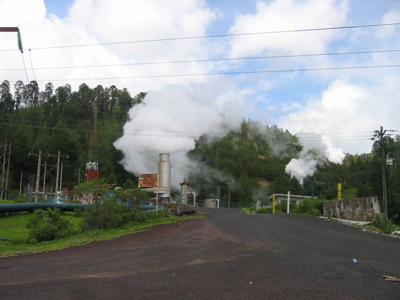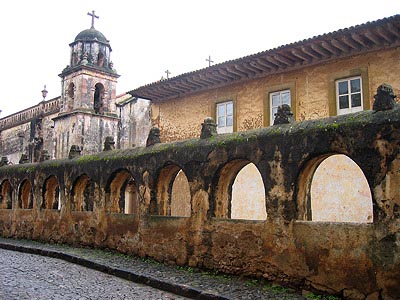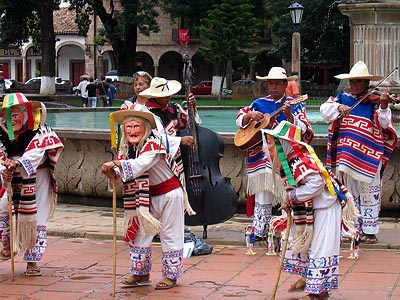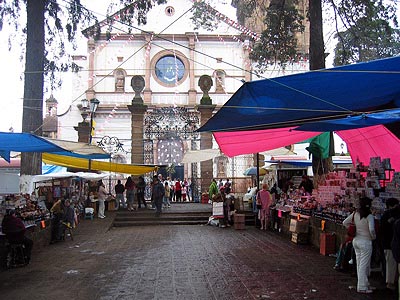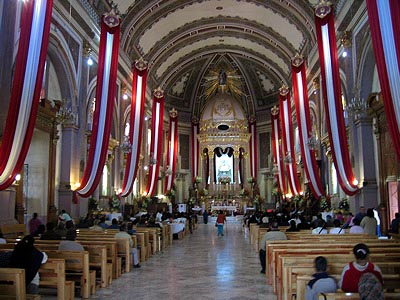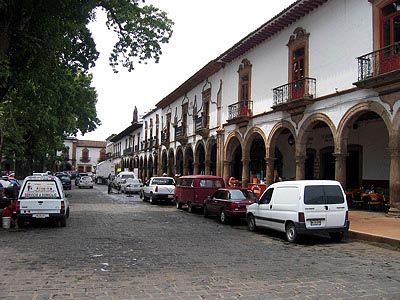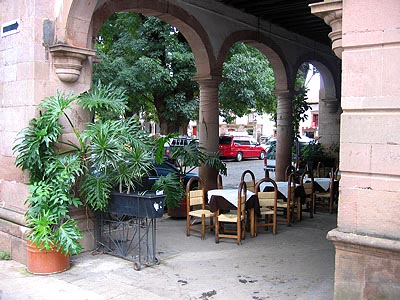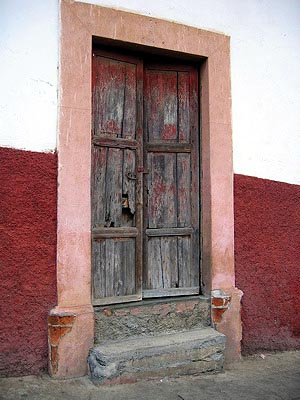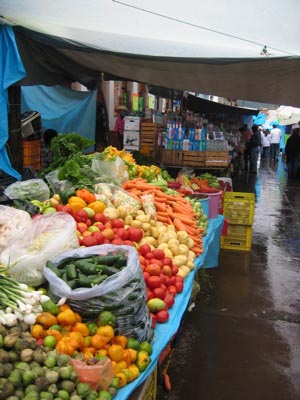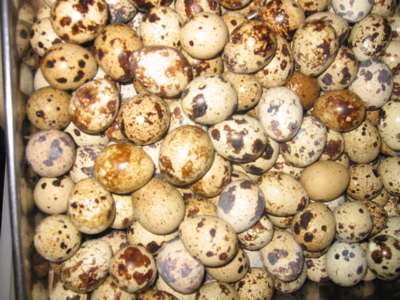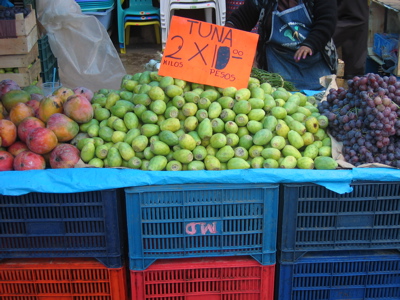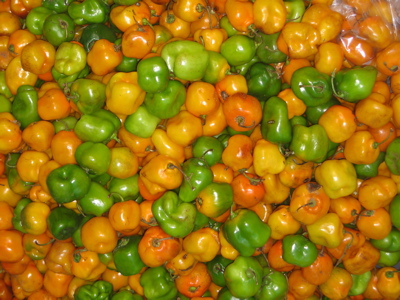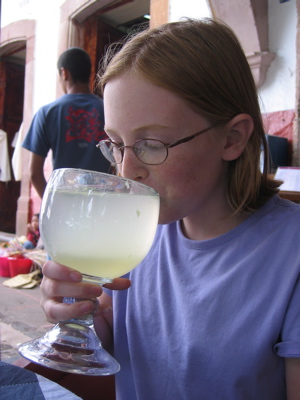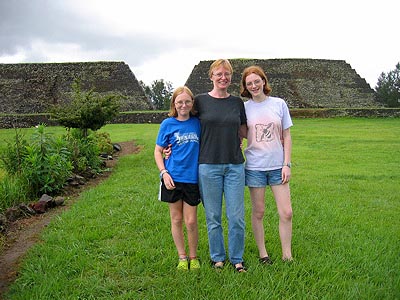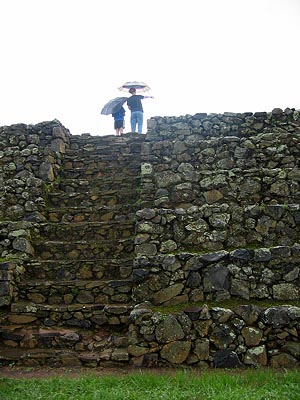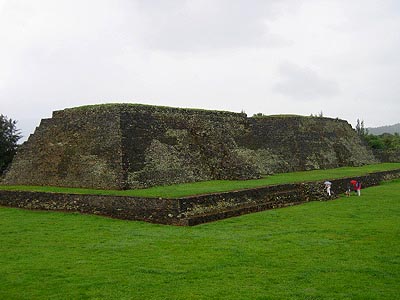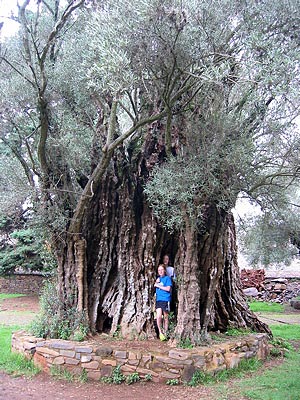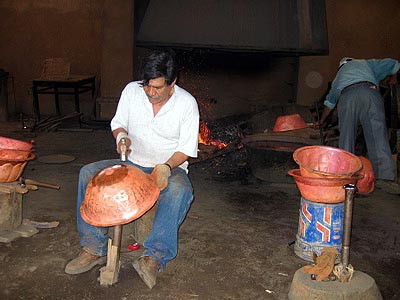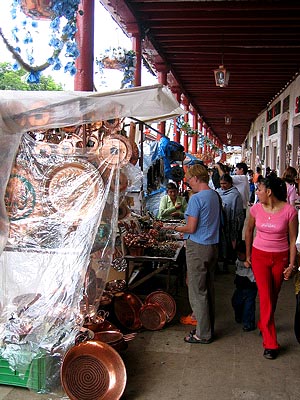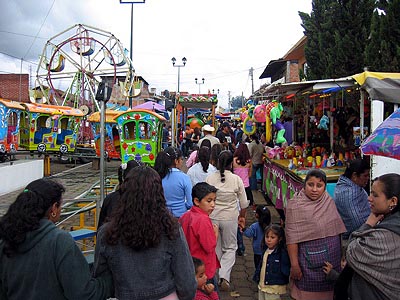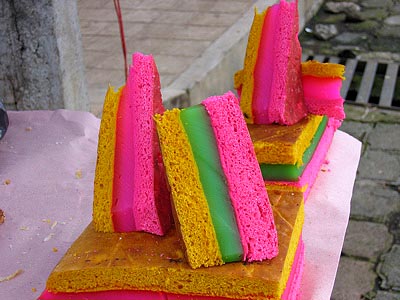Los Azufres
East of Morelia, in the mountains, there
are numerous hotsprings in the region known as Los Azufres.
The drive there (though two national parks) was less than 100 km,
but the road had so many twists and turns it seemed to take forever!
We stopped briefly to enjoy the view at Mil Cumbres ("thousand
peaks") but by that time we just wanted to get to the hotsprings . . .
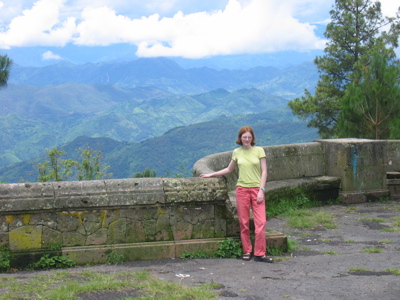

At Los Azufres there are several different spas and hotels with hot pools. You can choose what temperature water you want to bask in. Even on a weekday there were plenty of people.
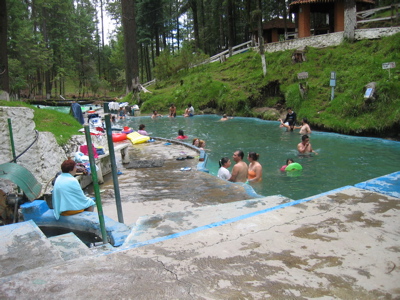
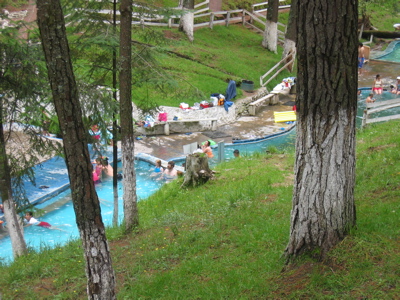
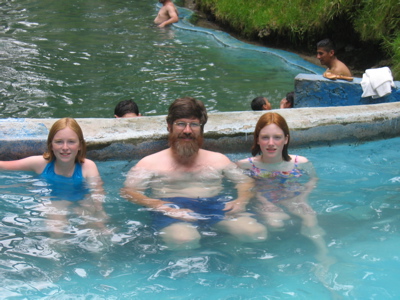
Everywhere there was evidence of geothermal energy stations like this one. President Vicente Fox had been nearby the day before to talk about alternative energy sources in Mexico.
